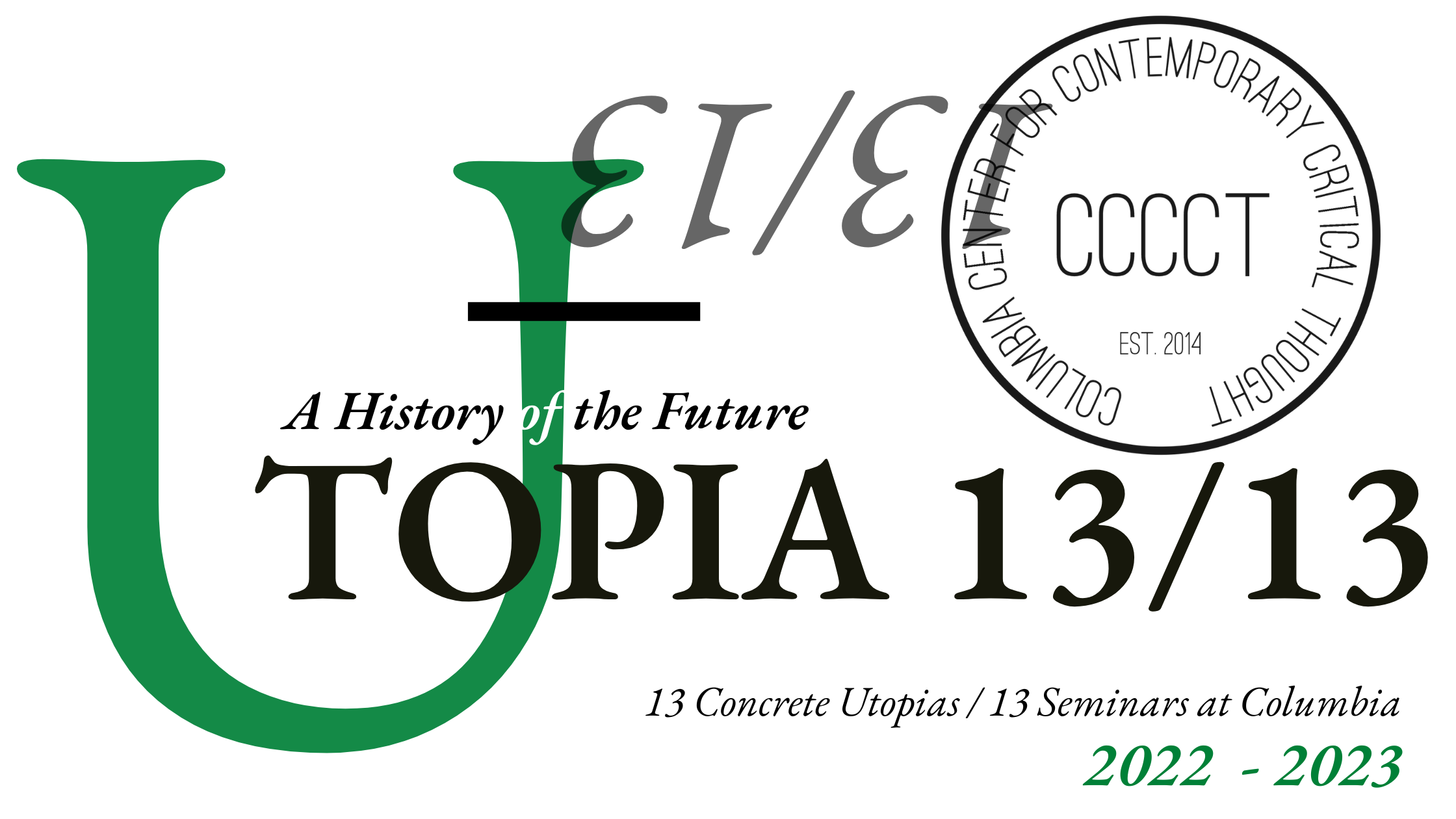Rahel Jaeggi, Martin Saar, and Bernard E. Harcourt
read and discuss
The End of Utopia by Herbert Marcuse
“Possibilities of Utopia Today” with Ernst Bloch and Theodor W. Adorno
and “Critical Theory and Utopian Thought” by Alexander Neupert-Doppler & Charles Reitz
Thursday, March 9, 2023
Wissenschaftskolleg zu Berlin, Berlin, Germany
“One sentence which I think we can all subscribe to in the end is a simple one, curiously enough, by Oscar Wilde: ‘A map of the world that does not include Utopia is not worth even glancing at.'”
— Ernst Bloch, in conversation with Theodor Adorno, “Possibilities of Utopia Today” (1964)
The concept of Utopia was of great interest to the first generation of the Frankfurt School (Horkheimer and Adorno, and later Marcuse) and to their adjacent thinkers, Ernst Bloch, Walter Benjamin, and, still further away, Karl Mannheim. Yet among this group, there was an important shift in the relation to utopia from what one might call a “unidirectional” concern during the early period (1920s-1930s, with the publication of Bloch’s The Spirit of Utopia [1918] and of Mannheim’s Ideology and Utopia [1929]), to what one might call a “bidirectional” approach during the late period (1950s-1960s, especially prior to the student uprisings of 1968, with Marcuse’s idea of the “end of utopia” and Bloch’s efforts to revive utopia and imagination within the East Bloc). This transformation is the product, in large part, of the history of Soviet communism, the rise and fall of Stalinism, and the ossification of socialism in the East Bloc on the one hand, and the lead up to the student revolutions of May ‘68 in the West on the other hand.
During the earlier unidirectional moment, critical theorists predominantly analyzed the concept of utopia through the lens of the historical absence or non-realization of emancipatory uprisings in the West. The task for Bloch and Horkheimer was to articulate the interaction between utopian thinking and emancipatory praxis. By contrast, during the later bidirectional period, there developed different geopolitical discourses on utopia: one concerning the role of utopian thinking in relation to revolutionary praxis in the West and the other regarding the need for utopian thinking to radically reimagine Soviet-style socialism.
It is fair to say that, through the prism of both the temporal shift and the political fragmentation, Critical Theory produced a spectrum of theories of utopia. To help explore and disarticulate this spectrum of ideas, it is a privilege to welcome two brilliant critical philosophers and leading thinkers of the Frankfurt School, Rahel Jaeggi and Martin Saar. Rahel Jaeggi is the author of Critique of Forms of Life and is Professor of Practical Philosophy, with an emphasis on Social and Political Philosophy, and director of the Center for Humanities and Social Change Berlin at the Humboldt-Universität zu Berlin. Martin Saar is the author of Genealogy as Critique: History and Theory of the Subject after Nietzsche and Foucault, and is Professor of Social Philosophy at Goethe-Universität Frankfurt am Main; this year, Martin Saar is a fellow at the Wissenschaftskolleg zu Berlin—and in that capacity, is our host at the Wissenschaftskolleg.
Welcome to Utopia 10/13!
